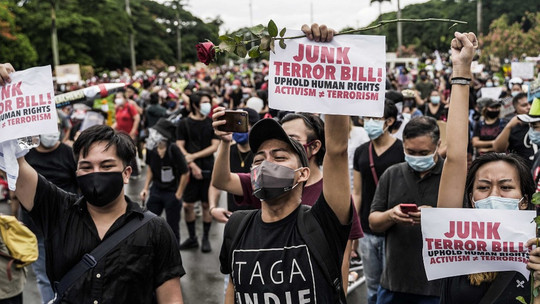On Monday, August 3, new AFP chief Lieutenant General Gilbert Gapay said that the armed forces want to regulate social media use as part of the anti-terror law which was signed by the President Rodrigo Duterte on early July. The terror law has been slammed by lawyers and rights activists by giving unprecedented powers to the executive. The authorities argued that the country “need to have specific provisions” on the use of social media to stop terrorism when the terrorist are planning crimes through different social media platforms.
NUJP, in its statement, said it rejected the proposal since the regulation will threaten freedom of expression. “Social media has given so many once voiceless Filipinos a platform to openly air their views on matters of public interest. Yet it is not inconceivable that a president who abhors criticism and dissent to the point that well-intentioned pleas are interpreted as calls for "revolution" would consider this an existential threat. Supporting democracy means the country needs more freedom.”
“We do not dispute the need to fight terrorism. But how, we ask, does stifling people's rights and liberties achieve that goal?” NUJP added.
NUJP together with journalists from Rappler, ABS-CBN, civil society groups and artists have filed a petition for certiorari and prohibition of the controversial Anti-Terrorism Act of 2020. The petition was filed as GR No. 252747 and is the 13th to be filed in the Supreme Court. Other human rights organisations and freedom of expression defenders as well as youth groups have also submitted petitions to the Supreme Court, arguing that several of the provisions in the law are unconstitutional.
The IFJ said:“The introduction of anti-terror law already means authorities have sweeping powers to arrest without the warrants. To then extend this punitive law to criminalise social media users, is clearly intended to silence critical voices. The IFJ stands with NUJP in urging the authorities to reconsider the law and the harsh penalties that impede freedom of expression.”

